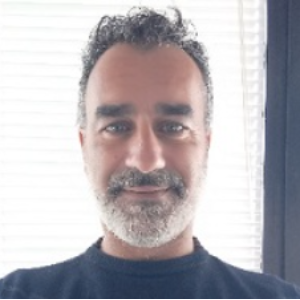Title : Biomass-derived molecules valorization: from furfural to 2,5 furan dicarboxylic acid using a two-step oxidation/carboxylation process
Abstract:
Biomass-derived oxygenate-species can be considered an alternative to fossil resources derived chemicals. Among them furfural, that can be easily produced from xylose dehydration over acid catalysts, has received great attention as precursor of commodity chemicals. In this paper we present a two-step process for the conversion of furfural into 2,5-furan dicarboxylic acid (FDCA) that can replace fossil sourced phtalic acid used for the production of polyesters such as polyethene phtalates (PET). Polyethene furoate–PEF, has the right properties for being converted into fibers, films and packaging materials. The highly selective synthetic procedure is based on two steps, namely: i) a heterogeneously catalyzed aerobic oxidation of furfural to furoic acid in water and ii) the direct carboxylation of the latter to 2,5-FDCA. In the first step, furoic acid is obtained with 20% yield and 100% selectivity using low cost mixed metal oxides (MMO) as catalysts: both the unreacted reagent and the catalyst are recovered and re-used in subsequent cycles to improve the conversion. In the second step, furoic acid is converted into 2,5-furan dicarboxylic acid in presence or absence of CO2. A key copper-di-furanoate intermediate has been synthesized and fully characterized that is able to promote the carboxylation at C5 of furoic acid affording 2,5-FDCA with 98% yield and 100% selectivity. The recovery and recycling of metal species make this process quite useful for synthetic purposes.
Acknowledgements: PRIME Project (0333000072 – POR-FESR, 14-20 ASSE I-I.1 B.2.2 -Bioeconomia) is acknowledged for financial support.



